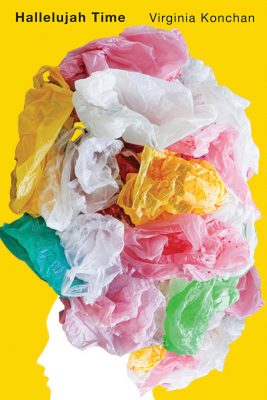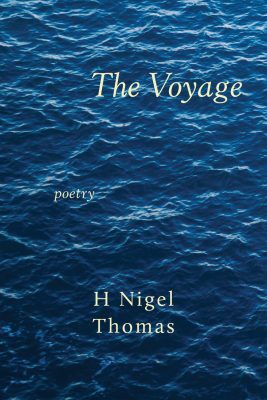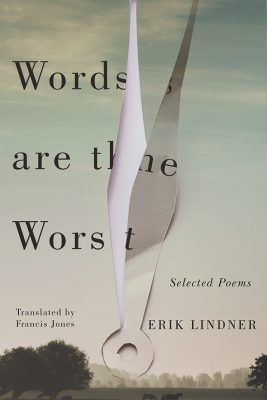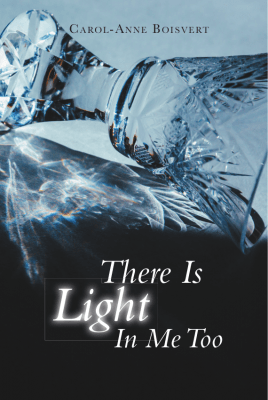
Hallelujah Time
Virginia Konchan
Signal Editions
$17.95
paper
11opp
9781550655827
I can’t stencil a blueprint of home.
It’s like a pop vocalist’s key change.
It’s like being consumed by desire.
It’s like dedicating yourself to a life
of works, to be saved by grace alone.
Anchored in a tone that balances personal perspective and intellectual relativity, Konchan’s poems are able to twist from frivolity to striking wisdom, turn from comedic imagery to aphorisms on life and death, without sacrificing their emotional core.
You live many times,
but you only die once.
This is death’s glory,
the spirit of the age.
The final section of Hallelujah Time, titled “Vox Populi,” is where Konchan’s meditations dive even deeper. From architecture to zygote, each poem excavates a letter of the alphabet through words and ideas that stretch across history and ultimately construct humanity (and all the humans wresting within it), with mythology, politics, art, and pop culture circulating from one end to the other.
M is for Machiavelli, Marilyn Monroe,
the market price of meth, monolingual
monopolies, and mass media’s celluloid
icons, epitomized by Warhol’s diptych:
silkscreen images of her mesmeric face.
It is as if all the pages before these ones were preparing us for “Vox Populi” and its network of astute discourse; at this point the narrative arc is clear and any expectations and presumptions should be long gone, leaving us free to soak in the blissful endeavour.
***

Antonyms for Daughter
Jenny Boychuk
Signal Editions
$17.95
paper
92pp
9781550655810
Those nights my mother passed out,
a cigarette lit in her mouth: distant thunder
I ignored.
Now, it’s too late to evacuate. Of course, the first fire was an accident—
but after?
What is a match, if not a loaded inheritance?
In measured couplets or longer-lined meditations, even a vulnerable prose poem and serpentine five-part journey that borrows from Elizabeth Bishop, Antonyms for Daughter skillfully looks for a way out of history and (al- most) settles for the here and now.
For months, I thought laughter
…………………..would petrify my lungs,
………….that the cedars would gut me
if I tried to run. I was certain
…………………an orgasm would kill me
………………………………………………..instantly—
Throughout, the titles of several poems reflect back on each other and the book’s title, drawing hundreds of moments into a larger picture of a difficult mother-daughter relationship and all that goes into it: “Antonyms for Lull- aby,” “Antonyms for Mother,” “Antonyms for Inheritance,” “Antonyms for Heart,” “Antonyms for Time,” and “Antonyms for Funeral.” Typically, defining something by what it is not obfuscates the facts of what is, offering only a blurred image of reality. Yet here that’s part of the point: what is blurred is also vital, open to exploration and interpretation that might one day bring it into focus.
I died to be my mother’s antonym,
but the antonym is never without
that with says you are not me.
We are not the same, but neither am I
free of her.
***

The Voyage
H. Nigel Thomas
Mawenzi House
$19.95
paper
112pp
9781774150566
At the bottom of the valley,
motley humanity
wanders disparately, and
I recall that
when a boy they made me
wonder why my parents had me.
Glimpses of longer stories stream through The Voyage, offering narrative threads between poems and insights into the memories and mindsets that make Thomas, his family, and his friends who they are. Even in such personal moments, these observations of raging fathers, fearful sons, cruel bigots, and kindhearted allies in tumultuous times reveal an emotional depth capable of reaching out to anyone.
Necessity puts us on its shores frequently,
and we get knocked down
occasionally by an unexpected wave
and dragged out to sea.
And – ah those who’re tossed in
for profit
or as a lesson
on what happens to the non-conforming.
Beyond uncovering the impacts of individuals and relationships, The Voyage spends time contemplating survival and the state of the world through the lenses of art, literature, and history. Empathetic and thoughtful, Thomas explores form and language to bore into broader insular assumptions, long-held truths worth dismantling, and his own outlook on the past and present.
Now I’m rife
with useless longing
and will not say,
as some glibly do,
That’s life.
***

Words are the Worst
Selected Poems
Erik Lindner
Translated by Francis R. Jones
Signal Editions
$17.95
paper
94pp
9781550655834
The garden lies between the road and the window
I saw through my dream by standing up in it
and still you shrug your shoulders
amidst what’s embracing you
that cartwheel and that brick path
the chair which just stays put
Translated into English from Dutch by Francis R. Jones, Words are the Worst captures Linder’s nuanced details and dreamlike, visionary tone, where what seemed unimaginable rises up from the page into possibility. As the book’s introduction by writer David O’Meara points out, “A Lindner poem repeatedly places the external world in an existential relationship to a vanishing-point.”
I remember the ground shaking and how you stood there waving
with all those tattooed birds squawking on your arms
the lower the thunderclouds loomed the fiercer the waves
you schlepped handfuls of wet sand all the way up the beach
your elbows’ wipers plastering the wall.
Cinematic in an experimental sense, without expositional bombast or trivial action sequences, Lindner’s poetry cuts into the quotidian mise en scène to lay bare illuminating juxtapositions across time and space. What is left on the screen of the page opens up another way of seeing, rife with amazement and curiosity.
she’s at the table putting out the silence
he’s rinsing the windows dark
shards from the hours we sit together
shipless in the dark rain
the pigeons which suddenly all take flight
the eyes on the branches in the square.
***

There Is Light In Me Too
Carol-Anne Boisvert
FriesenPress
$15.49
paper
66pp
9781039107717
Some days I feel like
setting myself on fire
none of this
an attempt to
keep others warm
more a wish
to let go
of all the anger in me
Unfolding in three sections – “Breaking,” “Changing,” “Standing” – There Is Light In Me Too recounts a year of the narrator’s life, ranging from chaos into the post-storm calm after the breakup of a relationship.
I’m not a silver lining kind of girl
I’ve cried a lot
to get rid of pain
you’ve got to feel it
and that’s what I did
I know there is light in me too
but you can’t tell me
darkness isn’t warm and familiar
Yet Boisvert’s raw recounting of one year often crosses the boundaries of that time frame, referencing past traumas, ongoing healing, and hopes of freedom from pain. All this hints at bigger questions about the transformational resonance of difficult times in one’s life and how much of that is under our own command. Like most deeply personal art, the process of creating the book’s poetry itself pro- vides control within the chaos and a healing of its own.mRb






0 Comments